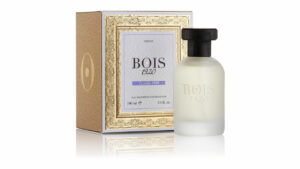WHAT started out as doing favors for friends is now a two-store game for Corso Como 88.
Corso Como 88 founders Imelda Menguito-Sciandra and Valter Sciandra, who alternate between the Philippines and Italy, used to buy bags and other European luxury items for their friends as favors. This soon evolved into a full-on buying business for the Sciandrias, and now, Ms. Sciandria can point to their two stores featuring European goods: the first in Ayala Malls the 30th, and a second, its flagship, in the relatively new One Ayala in Makati. The store was opened with a big party on Jan. 15.
While familiar brands are well-represented (Prada and all your -ccis, and then some more), Ms. Scandria is now also the exclusive distributor for a number of European brands few people may have heard of: Biagini 1968, Buti Italia, Jiano, Bottega Italiana Spigo 1920 (Bois 1920), and Acqua dell’Elba.
There are bags: Biagini 1968 boasts of several bags, mostly in exotic skins, with a line with enamel sculptures on its handles. Jiano has bags in rigid geometric shapes like avant-garde sculptures in themselves, while Buti Italia follows classic lines. And perfumes: BOIS 1920 has perfumes with very well-structured profiles (its Classic 1920 is a must-smell), while Acqua dell’Elba presents something a little more casual.
During the opening, Ms. Scandria explained to BusinessWorld how and why she put the brands together. “I see beautiful things in Italy and the rest of Europe. They have a love to make everything perfect,” she said.
The familiar Italian names are sourced from showrooms in Europe, and the designs she procures are those that haven’t been displayed in the stores here or are on limited release in Europe. As for the small boutique brands that boast similar price tags (playing around in the P50,000 – P100,000 level), she says, “I personally saw how it was made. I know the quality, I know that it’s very difficult to replicate,” she said.
She pointed, for example, to a Biagini bag. When she placed orders for several pieces in time for the opening, they asked for two months to finish the order, because everything they do is mostly accomplished by hand. According to Ms. Sciandria, the skins have to be cured, dyed, and cut in a particular way, and it takes a lot of time to finish just one bag. “I saw it made, from the python skin, to how it’s dyed,” she said. The dyeing process makes it so that each bag is unique, and no two bags are exactly alike (not to mention the difference between one animal’s skin to the next). “I will not be able to sell something that I don’t believe in and I don’t like.”
Ms. Scandria had been a chef first then a housewife when she was doing the shopping favors for friends back in the 2000s. Her first store opened in 2022. The familiar Italian brands were a shoo-in, but on how she discovered the smaller, artisanal brands, she said, “We love eating.”
While going around trying new things to eat in Italy, she and her husband would come across these items and if they liked them, they would go to talk to their producers. She told us that she might bring in more brands this year, but “We still have to try them out,” she said, meaning she actually tests the items through her own stress tests. “I need to know if the bag really works,” she said, with fit, ease of maintenance, and ease of use as some of her metrics.
The goal for her in the future is to open stores outside Metro Manila: “At least they [customers] don’t have to fly to Europe; they don’t even have to go to Manila.”
For her though, Corso Como will only be truly successful when they become top of mind: “I would think I could call Corso Como successful when people would say that when they need a bag, they would go to Corso Como.”
A lot of the brands in the store take real immersion into Italian culture, and, apparently, despite the number of big global brands all over the magazines, we’ve only scratched the surface of Italian luxury. Ms. Scandria, married to one, tries to explain how Italians live so wonderfully. “They complain a lot, because… it’s so difficult for them to be contented with their product, their food; everything.
“You’d think that it’s a negative thing to complain, but after a few years there, I understood that they’re actually not satisfied. They want a higher level for whatever they’re doing. Hindi sila puwede na okay na ito; puwede na ito (‘Just okay’ isn’t good enough for them),” she said. “Complaining is actually a very good trait. We should follow that. It’s actually constructive when people complain. At least they’re telling you what’s not good about it.”
This translates into whatever they create: “They will not produce a product or let it out in the market if it’s not perfect for their standards. Perfection is like art — it’s in the eye of the beholder. But to them, it has to be tested, tried, all the materials have to be top-notch.”
Corso Como 88 is at Level 3 of One Ayala, Ayala Center, Makati. — Joseph L. Garcia
